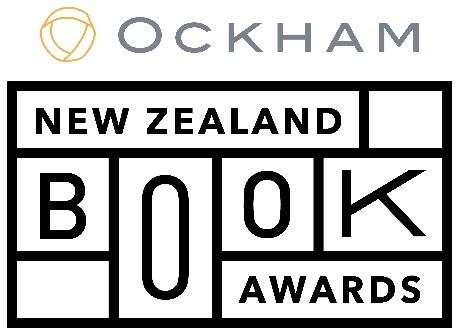- Judges hail ‘memorable and urgent stories that captured the concerns of their respective communities…. reflecting a complex and afflicted planet’
- Ambitious and wide-ranging variety of styles, storytelling traditions and themes – from family dramas, to explorations of love and loss, exploitation, betrayal and scandal, and the ‘hurts of history’
Twenty-six outstanding stories have been shortlisted by an international judging panel for the world’s most global literature prize. The writers come from 20 countries across the Commonwealth including, for the first time, Papua New Guinea, eSwatini, and St Vincent and the Grenadines. The 26 shortlisted entries range from forbidden love to coming-of-age stories, tackling subjects from bereavement to climate change, and span genres from speculative and literary fiction to romance and crime.
The Commonwealth Short Story Prize is awarded annually for the best piece of unpublished short fiction from any of the Commonwealth’s 54 Member States. It is the most accessible and international of all writing competitions: in addition to English, entries can be submitted in Bengali, Chinese, Creole, French, Greek, Malay, Portuguese, Samoan, Swahili, Tamil, and Turkish. Such linguistic diversity in a short story prize in part reflects the richness of the Commonwealth, not least its many and varied literary traditions. In 2022, 408 entries were in languages other than English.
Stories on the 2022 shortlist were selected from a total of 6,730 entries from 52 Commonwealth countries.
The 2022 shortlist in full:
PACIFIC
‘Slake’ by Sarah Walker (Australia)
‘The No Sex Thing’ by Eleanor Kirk (Australia)
‘The Nightwatch’ by Mary Rokonadravu (Fiji)
‘Speaking in tongues’ by Shelley Burne-Field (New Zealand)
‘Wonem Samting Kamap Long Mama?’ (‘What Happened to Ma?’) by Baka Bina, translated from Tok Pisin to English by the author (Papua New Guinea)
AFRICA
‘and the earth drank deep’ by Ntsika Kota (eSwatini)
‘Lifestyle Guide for The Discerning Witch’ by Franklyn Usouwa (Nigeria)
‘Something Happened Here’ by Dera Duru (Nigeria)
‘How to Operate the New Eco-Protect Five-in-One Climate Control Apparatus’ by Charlie Muhumuza (Uganda)
‘Thandiwe’ by Mubanga Kalimamukwento (Zambia)
ASIA
‘A fast-growing refugee problem’ by Sagnik Datta (India)
‘Accidents are Prohibited’ by Gitanjali Joshua (India)
‘Fault Lines’ by Pritika Rao (India)
‘The Kite’ by Sophia Khan (Pakistan)
‘The Last Diver on Earth’ by Sofia Mariah Ma (Singapore)
CANADA AND EUROPE
‘The Stone Bench’ by David McIlwraith (Canada)
‘Losing Count’ by Alexandra Manglis (Cyprus)
‘A Landscape Memoir’ by Jonathan Pizarro (Gibraltar)
‘A Hat for Lemer’ by Cecil Browne (United Kingdom/St Vincent and the Grenadines) ‘Hot Chutney Mango Sauce’ by Farah Ahamed (United Kingdom/Kenya)
‘Omolara’ by J.S. Gomes (United Kingdom/Trinidad and Tobago)
‘The Scars and the Stars’ by PR Woods (United Kingdom)
‘What Men Live By’ by Shagufta Sharmeen Tania, translated from Bangla by the author (United Kingdom/Bangladesh)
CARIBBEAN
‘No Man’s Land’ by Alexia Tolas (The Bahamas)
‘Bridge over the Yallahs River’ by Diana McCaulay (Jamaica)
‘Have Mercy’ by Sharma Taylor (Jamaica)
The shortlisted writers range in age from 23 and 75 and many have been nominated for the prize before. There are four previous regional winners on the shortlist: Diana McCaulay (2012), Alexia Tolas (2019), Sagnik Datta (2018), and Mary Rokonadravu (2015); Sharma Taylor has been shortlisted for the fourth time, and two authors, Sophia Khan and Franklyn Usouwa, for the second time.
Chair of the Judges, Guyanese writer Fred D’Aguiar hailed a list of ‘memorable and urgent stories that captured the concerns of their respective communities’ and noted that ‘these writers achieved all this while they displayed an astute sense of the many forms of the story and its many long traditions on a continuum, from oral to scribal, from performance to contemplation [….] the result is a shortlist of stories that is aware of history, while never sacrificing story. These stories are as diverse as the world that they are drawn from and care about: they reflect a complex and afflicted planet; they answer the call of today’s multiple societal tensions by acts of reading that transform how the reader views that world.’
Dr Anne T. Gallagher AO, Director-General of the Commonwealth Foundation, the intergovernmental organisation which administers the prize, commended all those who entered the competition, offering a ‘special congratulations to those who have made the shortlist in what was a highly competitive year.’ Dr Gallagher added: ‘the growing popularity of the prize speaks to the vital role that storytelling plays for people and communities right across the Commonwealth. In these fragile and uncertain times, the Short Story Prize transmits a strong and timely message about the power of cultural expression to help us make sense of ourselves and the world around us.’
The Commonwealth Short Story Prize is administered by the Commonwealth Foundation.
The 2022 judging panel is chaired by Guyanese writer Fred D’Aguiar. His fellow judges, drawn from the five regions of the Commonwealth, are Rwandan publisher Louise Umutoni-Bower (Africa), Indian short story writer and novelist Jahnavi Barua (Asia), Cypriot writer and academic Stephanos Stephanides (Canada and Europe), Trinidadian novelist and former winner of the Commonwealth Short Story Prize Kevin Jared Hosein (Caribbean), and Australian Wiradjuri writer, poet and academic Jeanine Leane (Pacific).
Global impact on authors’ careers
Winning or being shortlisted for the Prize opens a wealth of opportunities to the selected writers, propelling them further in their writing careers. Last year, Sri Lankan author Kanya D’Almeida won the 2021 Commonwealth Short Story Prize for her story ‘I cleaned the-’. She has subsequently signed with Felicity Bryan Associates Literary Agency and been invited to give talks at literary events, join judging panels, and lead writing workshops.
Shortlisted writers receive invitations to participate in literary events and festivals: 2019 shortlisted writer Rashad Hosein was a featured writer at the 2019 Bocas Lit Fest; 2021 regional winner Roland Watson-Grant was invited to speak at the Brooklyn Caribbean Literary Festival. Publication opportunities also arise: 2021 shortlisted writer Heather Barker was invited to submit work to Doek!, the Namibian literary magazine, and shortlisted stories by Dinesh Devarajan, Aravind Jayan and Riddhi Dastidar will be featured in an upcoming anthology of work by India’s finest young writers under 40 to be published by Aleph Books later this year. Riddhi has also been selected for the South Asia Speaks Fellowship for new writers.
The 2022 shortlisted stories will be published online, in the innovative online magazine of the Commonwealth Foundation, adda (addastories.org), which features new writing from around the globe. The judges will go on to choose a winner for each of the five regions. These regional winners will be announced on Monday 23 May, before being published online by the literary magazine Granta. The overall winner will be announced in June.
2022 Timeline
Shortlist announcement – Monday 25 April
Regional winners announcement – Monday 23 May
Overall winner announcement and award ceremony – Tuesday 21 June
About the Commonwealth Short Story Prize
The Commonwealth Short Story Prize is administered by the Commonwealth Foundation. The prize is awarded for the best piece of unpublished short fiction (2000-5000 words). Regional winners receive £2,500 GBP and the overall winner receives £5,000 GBP. Short stories translated into English from other languages are also eligible.
About the Commonwealth Foundation
The Commonwealth Foundation is an intergovernmental organisation established by Member States of the Commonwealth. The Foundation works to support civil society engagement in shaping the policies and decisions that affect people’s lives. Its cultural programming is founded on the belief that well-told stories can help people make sense of events and take action to bring about change. The Foundation works with local and international partners to identify and deliver a wide range of cultural projects and platforms, including adda, an online magazine of new writing.
Join the conversation @cwwriters on Facebook, Twitter and Instagram and keep up to date with the prize via commonwealthwriters.org






